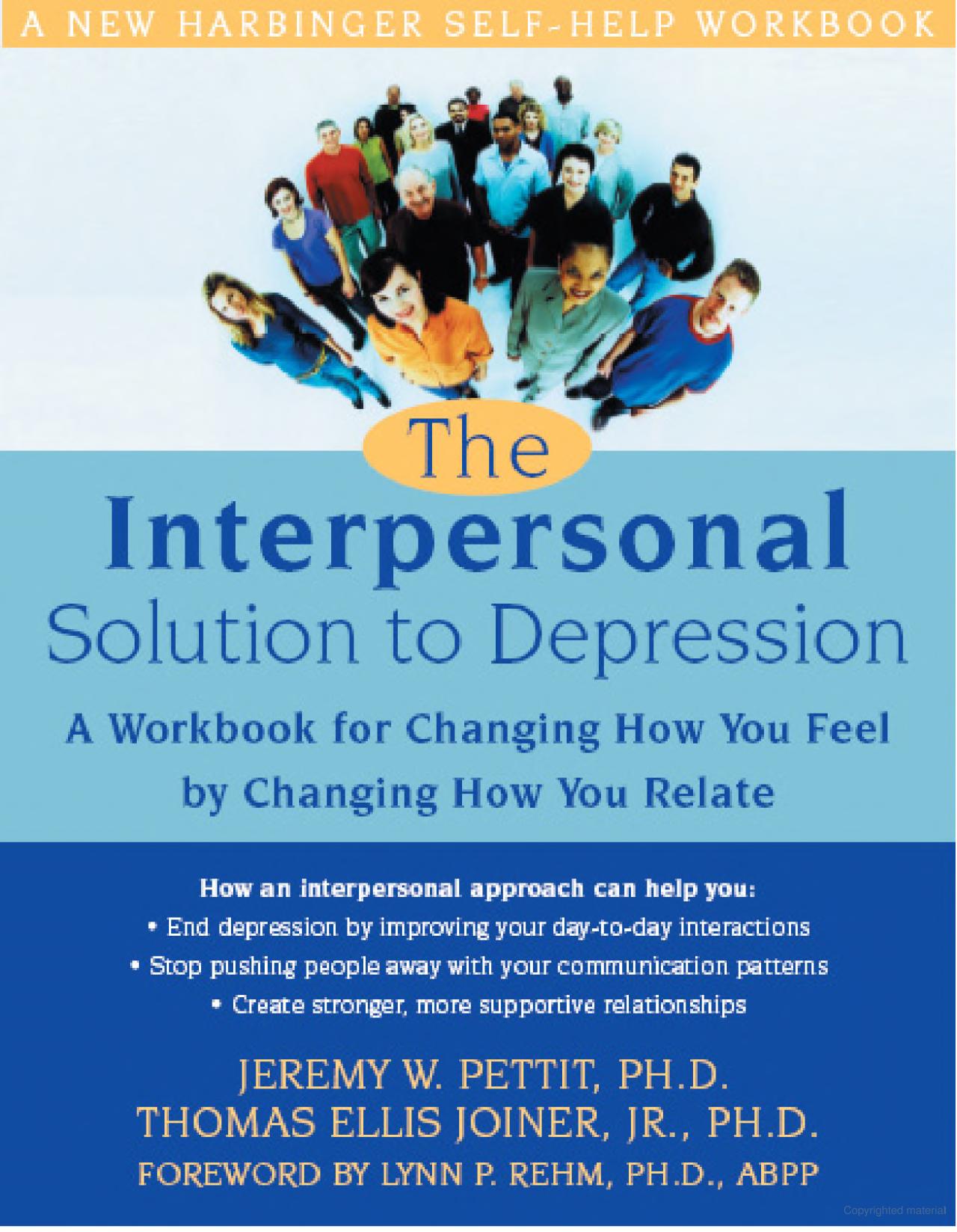
The Interpersonal Solution to Depression: A Workbook for Changing How You Feel by Changing How You Relate
I’m so clumsy—aren’t I?
Oh, I look so fat! Don’t I look fat?
Psychologists tell us that people suffering from depression often exhibit three social characteristics that can make them more prone to the disorder: impaired social skills, excessive interpersonal dependency, and excessive interpersonal inhibition. Imagine someone who might ask you one of the questions above. How would you respond? Depressed individuals can oftentimes crave validation from those around them, yet feel devastated when they get criticism or feedback that is not to their liking. Sometimes even their persistent craving for attention is enough to incline others to push the needy individual away, resulting in feelings of rejection—yet another potential depression trigger. People who have trouble relating socially to others at all may be disposed to feelings of loneliness and hopelessness, which are primary risk factors for depression.
Interpersonal psychotherapy (IPT) is a different way of thinking about the problem of depression. This short-term therapy, proven effective for the treatment of depression, works to identify the connection between interpersonal conflicts and depression. IPT seeks to help individuals struggling with depression modify their relationships to make them more supportive and less likely to cause or maintain feelings of depression. This book offers a step-by-step program you can use to make IPT work for you. Through its worksheets and exercises, you’ll learn to develop a more healthy and accurate self-perception of your own social skills. You’ll be coached to practice assertive behaviors, overcome inhibitions, and conquer your fear of failure. By increasing your awareness to the link between mood and relationships, and by helping you change the way you relate to others, this book will help you obtain significant relief from feelings of depression.
My Account Info
Manage your Membership information, email preferences, and more.
Journals
Membership in ABCT grants you access to three journals.
Convention
We are now accepting Abstract submissions for Continuing Education Ticketed Sessions at the 2024 ABCT Convention in Philadelphia, PA.
My Account Info
Manage your Membership information, email preferences, and more.
Journals
Membership in ABCT grants you access to three journals.
Convention
We are now accepting Abstract submissions for Continuing Education Ticketed Sessions at the 2024 ABCT Convention in Philadelphia, PA.
About the Author(s)
Thomas Joiner Jr.
Thomas Ellis Joiner, Jr., Ph.D., attended Princeton University in Priceton, NJ, and received his Ph.D. in clinical psychology in 1993 from the University of Texas at Austin. He is Bright-Burton Professor of Psychology and director of the University Psychology Clinic...
Read MoreJeremy Pettit
Jeremy W. Pettit, Ph.D., is assistant professor of clinical psychology at the University of Houston in Houston, TX. He completed his doctoral training at Florida State University in Tallahassee, FL. His primary area of interest centers on etiological and maintaining...
Read MoreBack
